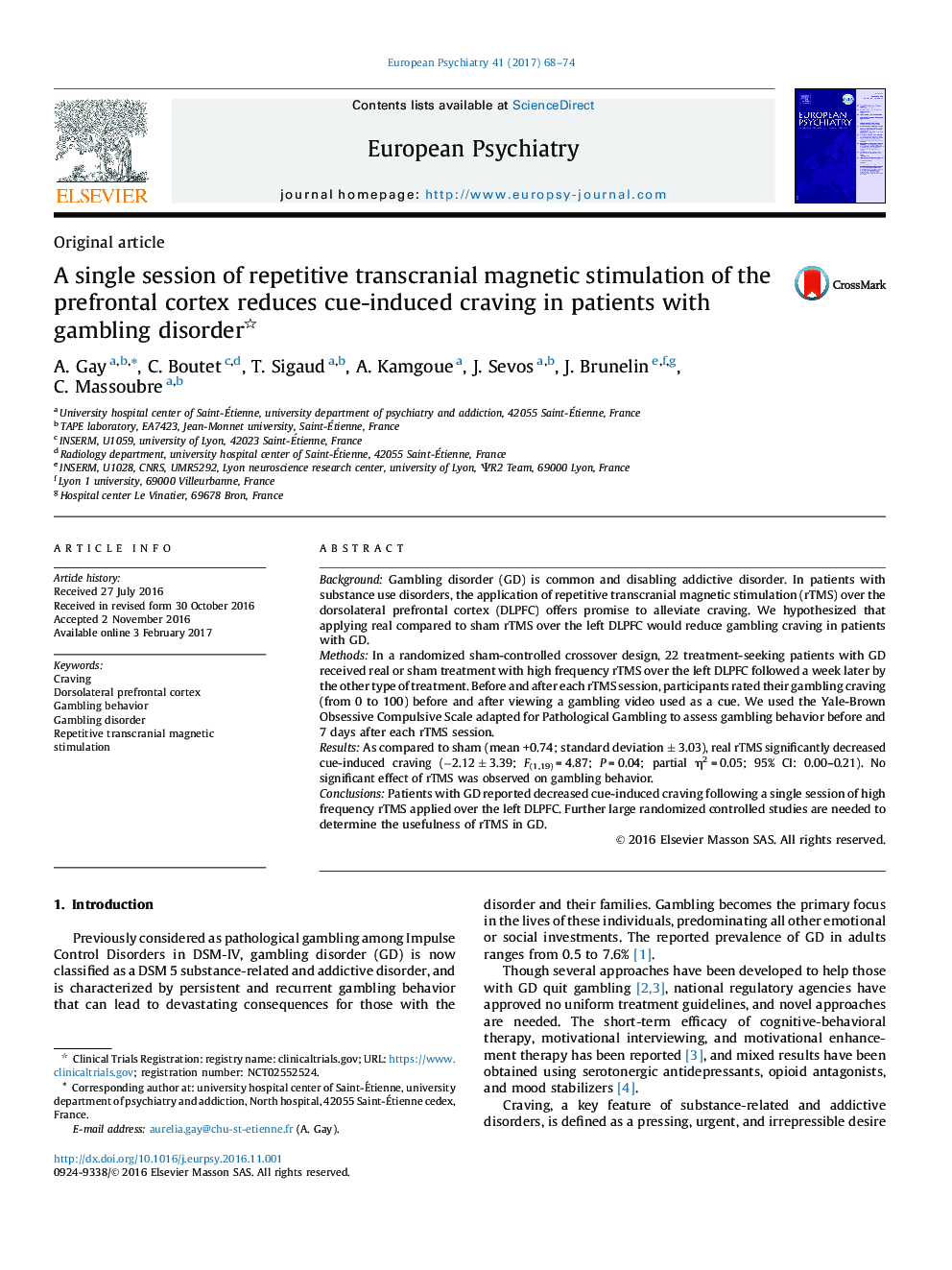| کد مقاله | کد نشریه | سال انتشار | مقاله انگلیسی | نسخه تمام متن |
|---|---|---|---|---|
| 5721572 | 1608049 | 2017 | 7 صفحه PDF | دانلود رایگان |
BackgroundGambling disorder (GD) is common and disabling addictive disorder. In patients with substance use disorders, the application of repetitive transcranial magnetic stimulation (rTMS) over the dorsolateral prefrontal cortex (DLPFC) offers promise to alleviate craving. We hypothesized that applying real compared to sham rTMS over the left DLPFC would reduce gambling craving in patients with GD.MethodsIn a randomized sham-controlled crossover design, 22 treatment-seeking patients with GD received real or sham treatment with high frequency rTMS over the left DLPFC followed a week later by the other type of treatment. Before and after each rTMS session, participants rated their gambling craving (from 0 to 100) before and after viewing a gambling video used as a cue. We used the Yale-Brown Obsessive Compulsive Scale adapted for Pathological Gambling to assess gambling behavior before and 7 days after each rTMS session.ResultsAs compared to sham (mean +0.74; standard deviation ± 3.03), real rTMS significantly decreased cue-induced craving (â2.12 ± 3.39; F(1,19) = 4.87; P = 0.04; partial η2 = 0.05; 95% CI: 0.00-0.21). No significant effect of rTMS was observed on gambling behavior.ConclusionsPatients with GD reported decreased cue-induced craving following a single session of high frequency rTMS applied over the left DLPFC. Further large randomized controlled studies are needed to determine the usefulness of rTMS in GD.
Journal: European Psychiatry - Volume 41, March 2017, Pages 68-74
